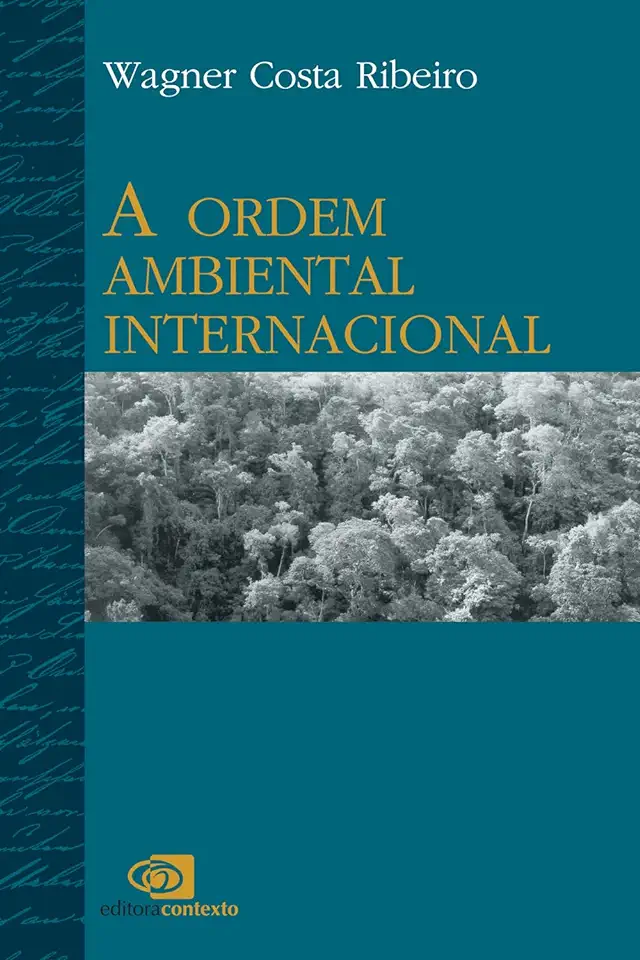
The International Environmental Order - Wagner Costa Ribeiro
The International Environmental Order: A Comprehensive Overview
In his groundbreaking book, "The International Environmental Order," Wagner Costa Ribeiro offers a comprehensive and thought-provoking analysis of the complex web of international agreements, institutions, and norms that govern global environmental issues. Drawing on a wealth of research and expertise, Ribeiro provides a critical assessment of the current state of international environmental law and policy, while also charting a path towards a more sustainable and just future.
A Call for Global Cooperation
Ribeiro begins by arguing that the environmental challenges facing the world today are truly global in scope and require a concerted effort from all nations to address. He emphasizes the urgent need for international cooperation and collaboration, highlighting the importance of multilateral agreements and institutions in facilitating collective action.
Key Elements of the International Environmental Order
The book delves into the key elements of the international environmental order, including:
International Environmental Law: Ribeiro provides a detailed overview of the various international treaties, conventions, and protocols that form the legal framework for global environmental governance. He examines the strengths and weaknesses of these instruments, and discusses the challenges of enforcement and compliance.
International Environmental Institutions: Ribeiro analyzes the role of international organizations, such as the United Nations Environment Programme (UNEP), the World Bank, and the Global Environment Facility (GEF), in promoting environmental cooperation and sustainable development. He assesses their effectiveness and identifies areas for improvement.
Environmental Norms and Principles: Ribeiro explores the evolution of environmental norms and principles, such as the precautionary principle, the polluter pays principle, and the principle of common but differentiated responsibilities. He discusses the influence of these principles on international environmental law and policy, and their potential to shape future developments.
Challenges and Opportunities
Ribeiro acknowledges the significant challenges facing the international environmental order, including:
Climate Change: He emphasizes the urgency of addressing climate change, highlighting the need for ambitious mitigation efforts and adaptation strategies. Ribeiro calls for a global commitment to transitioning to a low-carbon economy and investing in renewable energy sources.
Biodiversity Loss: Ribeiro draws attention to the alarming rate of biodiversity loss, and the importance of protecting ecosystems and species. He advocates for the adoption of sustainable land use practices, the conservation of natural habitats, and the fight against illegal wildlife trade.
Pollution and Waste Management: Ribeiro discusses the challenges of pollution control and waste management, emphasizing the need for improved waste disposal systems, reduced plastic consumption, and the promotion of circular economy models.
Towards a Sustainable Future
Despite the challenges, Ribeiro concludes the book on a note of optimism, outlining a path towards a more sustainable future. He calls for a transformative shift in our economic and social systems, emphasizing the importance of:
Sustainable Development: Ribeiro argues that economic development must be pursued in a way that respects environmental limits and promotes social justice. He advocates for the adoption of sustainable development goals and the integration of environmental considerations into all aspects of policymaking.
Education and Awareness: Ribeiro stresses the importance of education and public awareness in fostering a culture of environmental responsibility. He calls for greater investment in environmental education, and the promotion of sustainable lifestyles and consumption patterns.
Global Governance Reform: Ribeiro proposes reforms to the international environmental order, including strengthening the role of UNEP, enhancing the participation of developing countries in decision-making processes, and promoting greater transparency and accountability.
Conclusion
"The International Environmental Order" is a must-read for anyone interested in global environmental issues and sustainable development. Wagner Costa Ribeiro's comprehensive analysis and insightful recommendations provide a valuable roadmap for navigating the complex challenges of the 21st century. This book is a call to action, urging us all to work together towards a more sustainable and just future for our planet.
Enjoyed the summary? Discover all the details and take your reading to the next level — [click here to view the book on Amazon!]